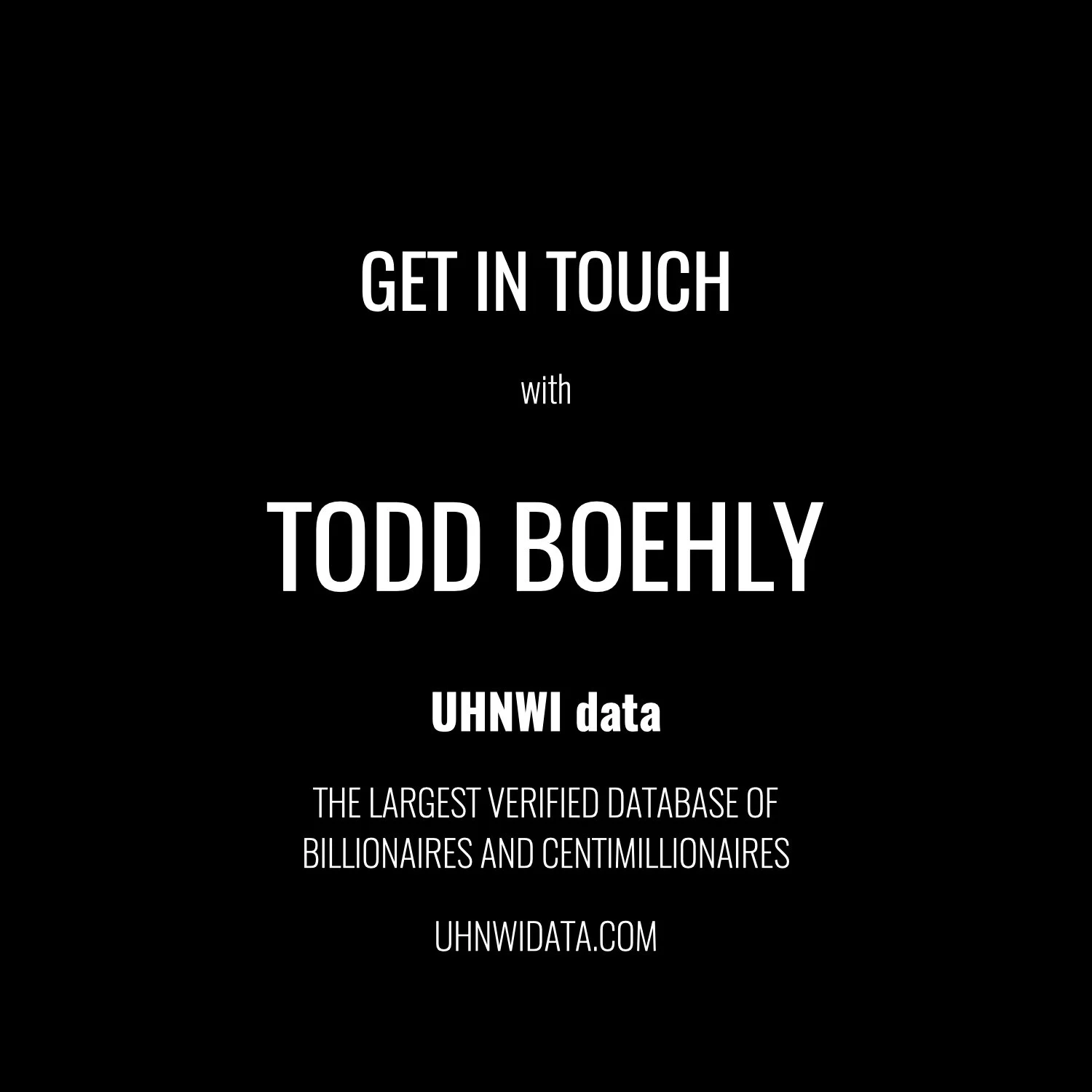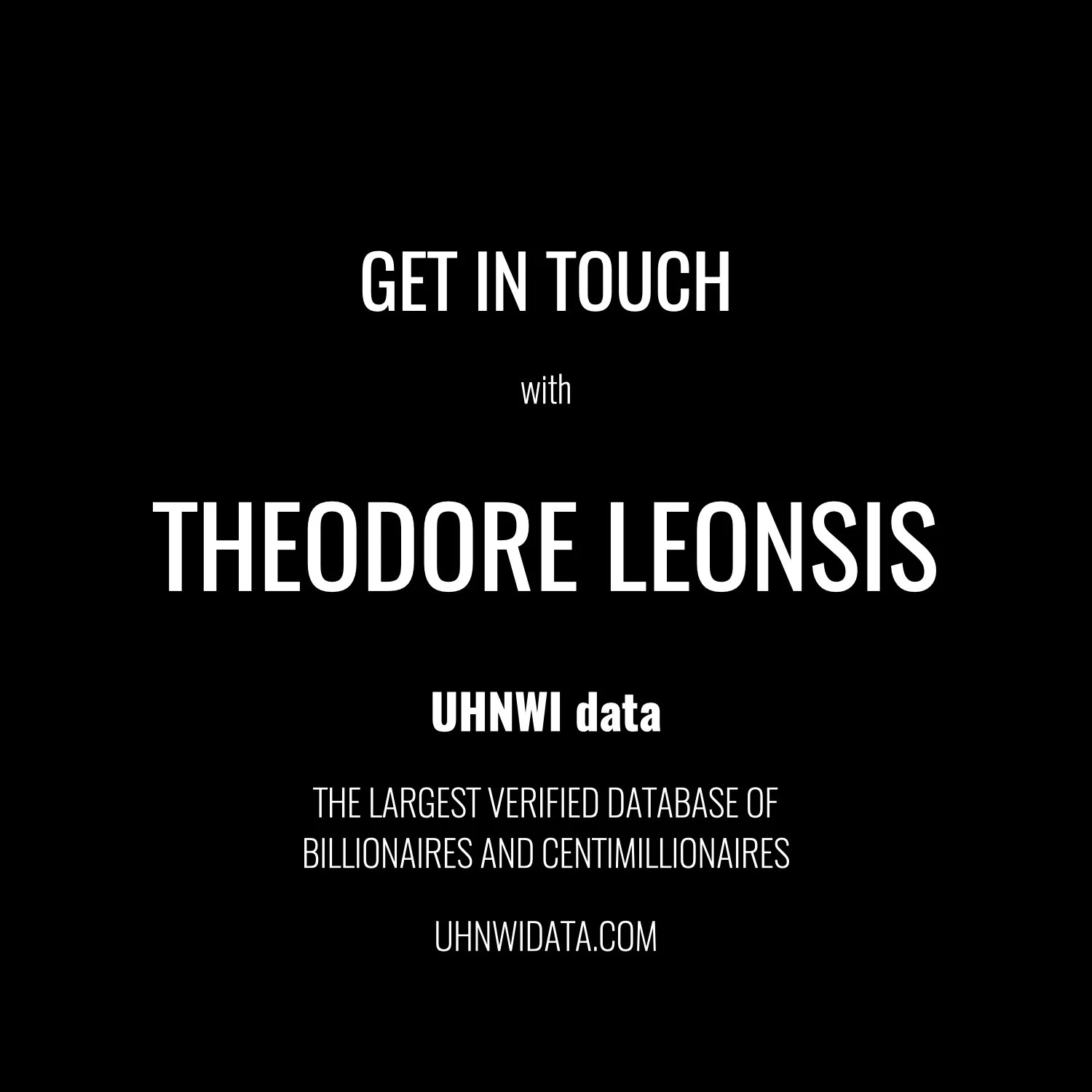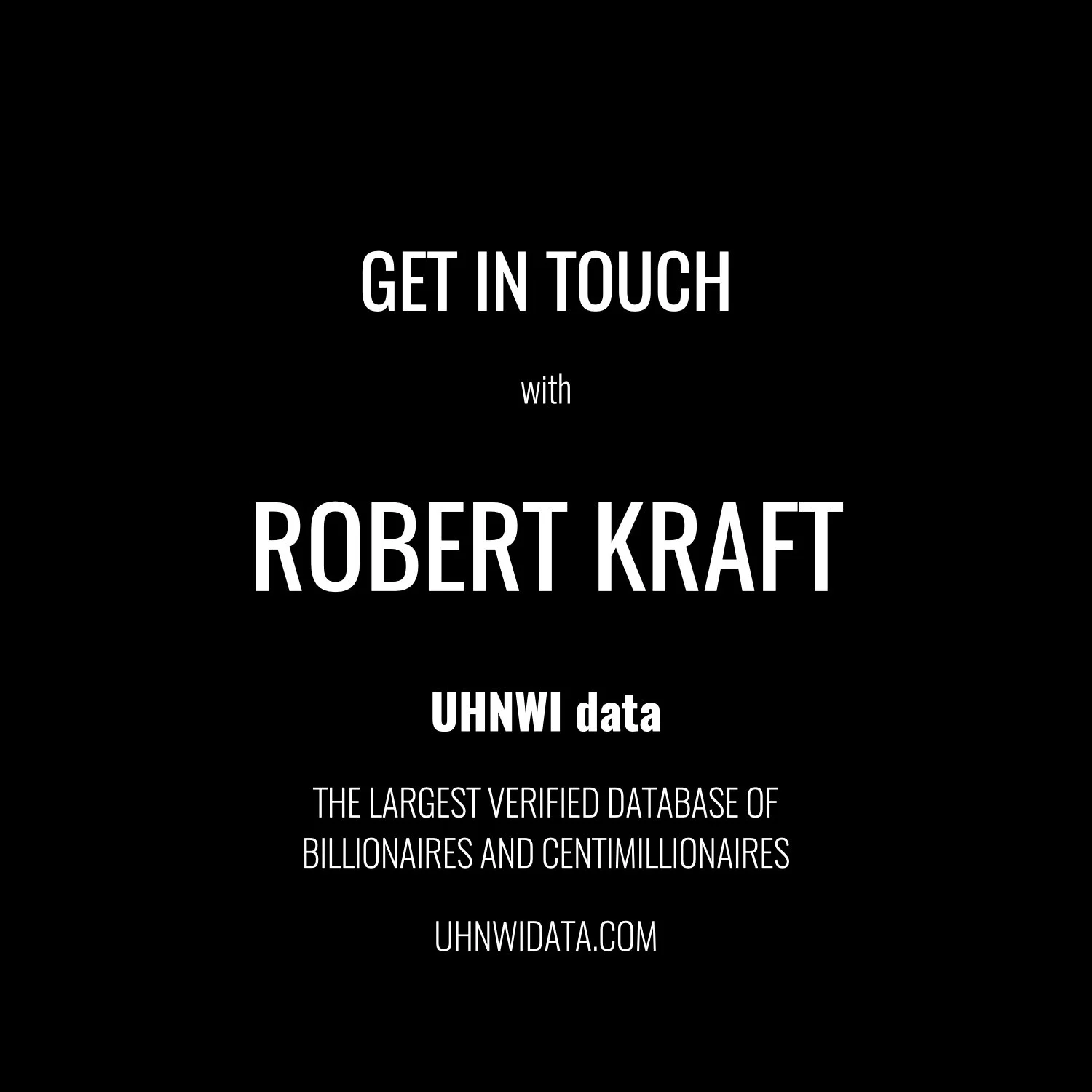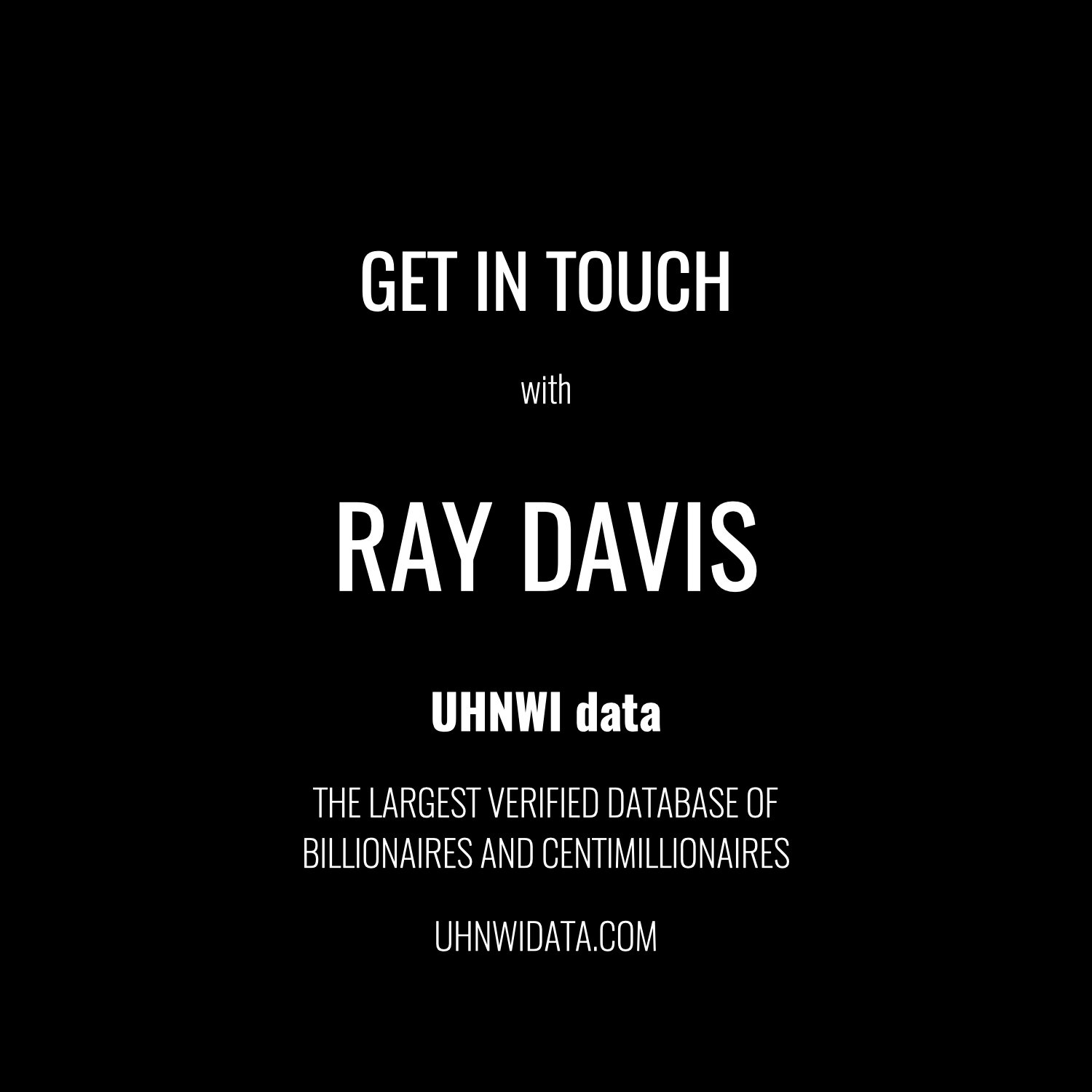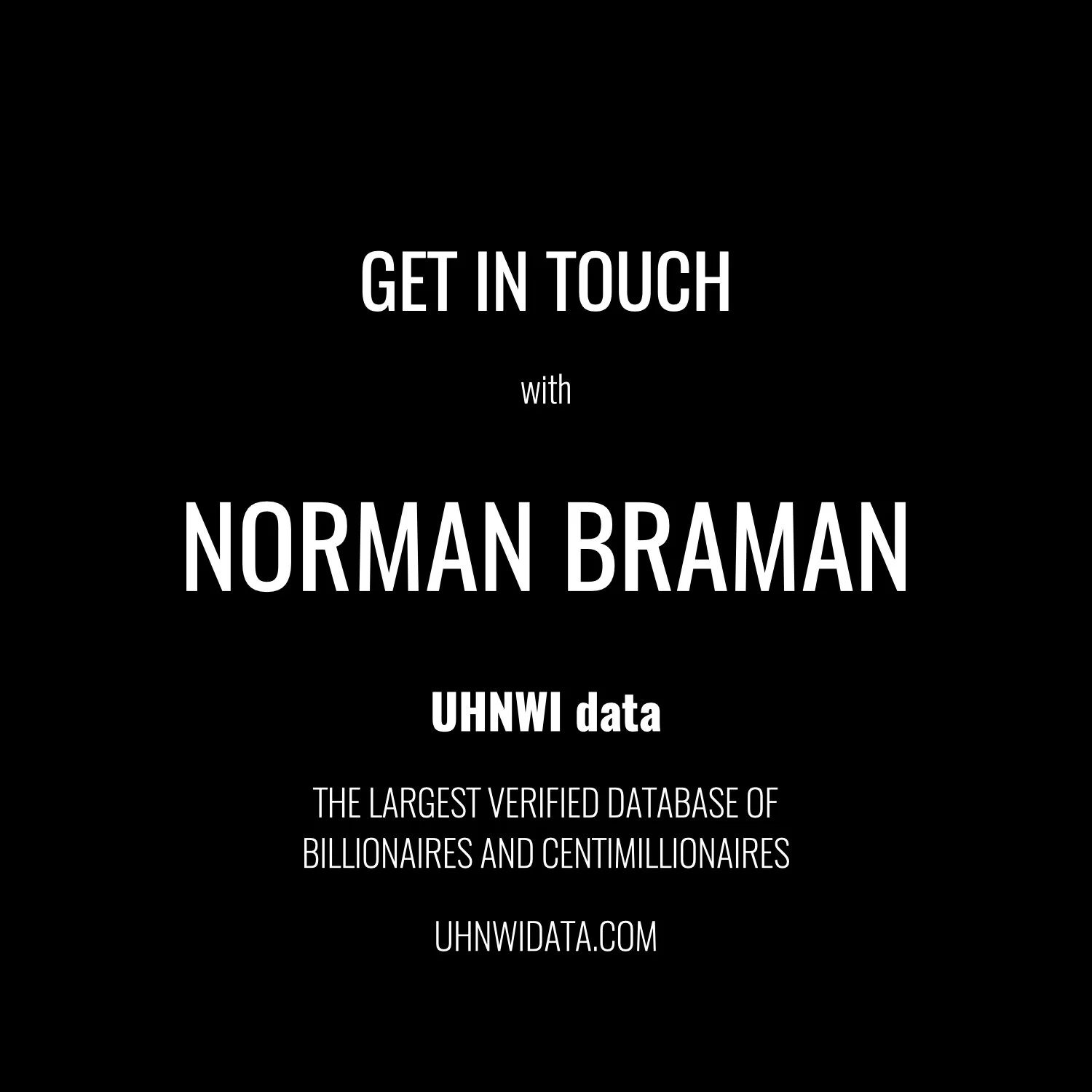Jerry Michael Reinsdorf (born February 25, 1936) is an American businessman, attorney, and sports franchise owner who serves as chairman and principal owner of the Chicago Bulls of the National Basketball Association (NBA) and the Chicago White Sox of Major League Baseball (MLB).[1] A native of Brooklyn, New York, Reinsdorf earned a bachelor's degree from George Washington University and a law degree from Northwestern University School of Law, and he worked as a certified public accountant before entering real estate.[2] He co-founded the Balcor Company, a real estate investment firm, in 1973 and sold it to American Express in 1982 for an undisclosed sum that formed the basis of his fortune.[3]
Reinsdorf acquired the Chicago White Sox in 1981 as part of an investment group led by him and Eddie Einhorn, purchasing the franchise from Bill Veeck for $19 million, and he assumed control of the Chicago Bulls in 1985.[4][3] Under his stewardship, the Bulls achieved six NBA championships between 1991 and 1998, establishing a dynasty centered on Michael Jordan, while the White Sox captured the World Series in 2005, their first since 1917.[5][1] These successes earned Reinsdorf induction into the Naismith Memorial Basketball Hall of Fame in 2016 for his contributions to the sport.[5] However, his tenure has also drawn criticism for decisions such as the post-1998 dismantling of the Bulls' roster, perceived frugality in player investments, and persistent advocacy for publicly funded stadium renovations, amid the White Sox's historically poor performance in recent seasons prompting reports of potential sale discussions as of 2024.[6][7]
Early Life and Education
Childhood in Brooklyn
Jerry Reinsdorf was born on February 25, 1936, in Brooklyn, New York, to Max and Marion Reinsdorf, a Jewish couple whose families originated from Polish immigrants. His father worked variously as a sewing machine mechanic, salesman, and in other trades such as taxi driving to support the household, while his mother managed domestic responsibilities in their modest middle-class apartment, where young Jerry often slept on a rollaway cot in the hallway. These circumstances, shaped by the economic hardships following the Great Depression, emphasized practical self-sufficiency and diligent labor within the family dynamic.[1][8][9]
Reinsdorf attended Erasmus Hall High School in Brooklyn, immersing himself in the local culture of baseball fandom during the 1940s and 1950s. A devoted supporter of the Brooklyn Dodgers, he regularly attended games at Ebbets Field, including the historic occasion of Jackie Robinson's major league debut on April 15, 1947, which exemplified the era's integration amid competitive play. This exposure to professional baseball in a resource-constrained urban environment fostered his enduring interest in the sport, grounded in the realism of working-class attendance rather than affluence.[10][11][12]
To contribute to family finances and build personal independence, Reinsdorf held early jobs such as preparing hot dogs at Nedick's concession stands near ballparks and stocking inventory in the warehouse of Esquire magazine. These experiences, combined with his father's pattern of multiple employments to make ends meet, reinforced habits of fiscal prudence and self-reliance in a neighborhood where government assistance was minimal and personal initiative prevailed.[9][13]
Academic Pursuits and Early Training
Reinsdorf earned a Bachelor of Arts degree from George Washington University in 1957, focusing on coursework that prepared him for quantitative financial analysis.[14][8] He subsequently qualified as a certified public accountant (CPA), demonstrating proficiency in accounting principles and auditing essential for evaluating complex financial structures.[8][15]
In 1960, Reinsdorf obtained a Juris Doctor degree from Northwestern University School of Law, where he developed expertise in legal reasoning and contract interpretation applicable to business transactions.[14][16] Immediately after graduation, he began his professional career as a tax attorney with the Internal Revenue Service (IRS) in Chicago, serving in that role for four years and managing intricate tax disputes that required precise application of revenue codes and negotiation tactics.[8][17]
During his IRS tenure, Reinsdorf handled cases involving high-profile audits, including a tax delinquency matter concerning Chicago White Sox owner Bill Veeck, which exposed him to the fiscal intricacies of sports operations and franchise valuations.[18] This experience cultivated his ability to dissect financial incentives and liabilities, bridging accounting precision with legal strategy. In 1964, he left public service for private tax law practice, leveraging these foundational skills to navigate inefficiencies in tax compliance and optimization.[17][19]
Pre-Sports Business Career
Legal and Tax Practice
Following his graduation with a J.D. from Northwestern University School of Law in 1960, Reinsdorf joined the Internal Revenue Service in Chicago as a tax attorney.[17] His tenure lasted four years, during which he audited high-profile entities, including his first major case investigating the tax delinquency of Bill Veeck, the Chicago White Sox owner at the time, which involved assessing unpaid liabilities amid Veeck's financial difficulties.[20] This experience honed Reinsdorf's skills in revenue recognition, asset valuation, and negotiation tactics applicable to complex business structures, particularly those involving sports and entertainment figures.[8]
In 1964, Reinsdorf transitioned to private tax practice in Chicago, where he provided advisory services to business and real estate clients, emphasizing structured tax planning within legal bounds.[18] His approach focused on verifiable deductions and compliance amid evolving regulations, building a foundation in pragmatic counsel that prioritized empirical financial data over speculative maneuvers.[21] By the late 1960s and into the 1970s, this expertise enabled him to navigate inflationary economic pressures and periodic tax code adjustments, such as those addressing investment incentives, establishing his reputation for data-driven strategies in a period of heightened fiscal scrutiny.[22]
Real Estate and Investment Successes
Reinsdorf co-founded the Balcor Company in 1973, initially partnering with associates to focus on real estate syndications involving apartment complexes and mid-sized office buildings.[23] The firm structured limited partnerships that appealed to investors by leveraging U.S. tax code provisions, such as accelerated depreciation and passive loss deductions, which allowed high-income participants to offset taxable income from other sources against real estate investments.[24] This approach enabled Balcor to pool capital efficiently, avoiding over-reliance on bank financing amid volatile interest rates, and emphasized properties with strong cash flow potential over speculative developments.[25]
Under Reinsdorf's leadership as chairman, Balcor expanded rapidly through targeted acquisitions and syndication deals, raising substantial investor funds by the early 1980s while maintaining disciplined underwriting standards that prioritized occupancy rates above 90% and conservative leverage ratios.[26] In 1982, anticipating shifts in tax policy and deregulatory pressures on financial services, Reinsdorf sold Balcor to American Express (via its Shearson Lehman arm) for $53 million, securing a high return on the firm's assets under management, which had ballooned into hundreds of millions through performance-based syndications rather than endless scaling.[27] This exit exemplified market timing over perpetual growth, as subsequent tax reforms like the 1986 Tax Reform Act curtailed many of the incentives Balcor had exploited, validating the decision to monetize amid peaking viability.[28]
Beyond Balcor, Reinsdorf pursued select limited partnerships in commercial properties, yielding consistent returns through value-add strategies like repositioning underperforming assets via operational efficiencies, which bolstered his pre-sports capital base without venturing into high-risk sectors like raw land speculation.[29] These ventures underscored a focus on verifiable ROI metrics—such as cap rates in the 8-10% range—and risk mitigation via diversified geographic exposure, primarily in the Midwest and Sun Belt, contributing to an estimated personal fortune sufficient to underwrite major acquisitions by the mid-1980s.[3]
Sports Franchise Acquisitions
Acquisition of the Chicago White Sox (1981)
In late 1980, the Chicago White Sox faced severe financial distress under owner Bill Veeck, exacerbated by declining attendance in the 1970s—such as drawing under 500,000 fans in 1970 amid 106 losses—and disruptions from Major League Baseball labor strikes, including the 1972 players' strike that shortened the season.[30][31] Veeck sought buyers to avert potential relocation, as the franchise's outdated Comiskey Park and poor on-field performance had eroded revenue, prompting interest from out-of-town groups.[32]
Jerry Reinsdorf, a real estate investor and tax attorney, assembled a limited partnership including broadcasting executive Eddie Einhorn to acquire the team, outmaneuvering competing bids by emphasizing commitment to retaining the White Sox in Chicago and leveraging the franchise's untapped infrastructure value in a recovering post-recession economy.[20][33] On January 29, 1981, American League owners approved the $20 million sale, allowing Reinsdorf's group to assume control and stabilize operations against immediate collapse.[4][1]
Reinsdorf's initial strategy prioritized fiscal prudence over aggressive spending, retaining manager Tony La Russa—who had been hired by Veeck on August 2, 1979—to maintain continuity and focus on cost-effective rebuilding rather than transformative overhauls.[34] This approach addressed the team's inherited debts and positioned the acquisition as a value investment, with the franchise's worth appreciating dramatically from the purchase price amid broader MLB economic growth.[3]
Acquisition of the Chicago Bulls (1985)
In early 1985, Jerry Reinsdorf, a real estate investor and principal owner of the Chicago White Sox since 1981, led a 23-member investment syndicate that acquired a controlling interest in the Chicago Bulls amid the franchise's ongoing financial losses and poor attendance. The group purchased 56.8% of the team for $9.2 million, implying a total franchise valuation of approximately $16 million, with Reinsdorf assuming the role of chairman on March 13, 1985.[35][2] This transaction followed the previous ownership's inability to stabilize operations, as the Bulls had endured years of sub-.500 records and declining revenue in a league facing broader economic pressures, including discussions of team contraction for weaker markets.[3] Reinsdorf viewed the acquisition as a calculated diversification from baseball, leveraging his Chicago business ties to mitigate risks in a basketball team that had finished the 1984–85 season with a 38–44 record but persistent operational deficits.[36]
The purchase emphasized prudent risk assessment, as the Bulls represented a turnaround opportunity in an NBA still recovering from the 1976 ABA merger and mid-1980s competitive imbalances, with several franchises teetering on relocation or dissolution. Reinsdorf's group prioritized immediate cost controls, including tighter budgeting for player personnel and front-office expenses, to address the inherited fiscal strain without aggressive spending. Marketing efforts were ramped up to boost local fan engagement, capitalizing on the recent draft selection of Michael Jordan in 1984 to signal potential revival, though the focus remained on sustainable operations rather than short-term splash.[37][38]
While the Bulls ownership complemented Reinsdorf's White Sox holdings through shared Chicago market synergies—such as joint promotional events and vendor efficiencies—the franchises operated independently under distinct league rules and revenue models. From inception, Reinsdorf enforced fiscal conservatism, avoiding debt-fueled expansions and aligning investments with verifiable revenue growth, a approach honed in his pre-sports real estate ventures. This strategy positioned the Bulls for gradual stabilization, distinct from the higher-profile White Sox efforts to secure public stadium funding.[39]
Chicago White Sox Ownership
Initial Stabilization and Infrastructure Investments
Following the January 29, 1981, acquisition of the Chicago White Sox for $20 million from Bill Veeck's group, Jerry Reinsdorf prioritized financial stabilization amid inherited operational challenges, including aging infrastructure at Comiskey Park and inconsistent on-field performance.[40][41] Reinsdorf's approach emphasized fiscal restraint, reducing debt through cost efficiencies and leveraging scouting for talent acquisition over free-agent spending, which helped avert further decline and set the stage for contention.[42]
To extend the viability of the 71-year-old Comiskey Park, Reinsdorf authorized targeted upgrades, including a 1984 reconfiguration of outfield dimensions—shortening left-center to 365 feet and right-center to 375 feet—to boost offense and attendance by favoring home runs over the park's prior pitcher-friendly expanse.[43] These measures provided interim relief but underscored the facility's obsolescence, prompting Reinsdorf to lobby aggressively for replacement amid threats of relocation to Florida or Tampa. In June 1988, Illinois legislators approved a $150 million publicly financed stadium via bonds backed by a 1% hotel-motel tax and other state revenues, with the White Sox committing to a 20-year lease and no rent if attendance fell below 1.2 million.[44][45] The arrangement drew criticism as a cronyist subsidy transferring public risk to taxpayers for private gain, though supporters cited projected economic multipliers from job creation, tourism, and local commerce—claims later debated in empirical analyses showing limited net fiscal returns from such projects.[46]
On-field progress validated Reinsdorf's development-focused strategy, as the White Sox, relying on homegrown stars like Harold Baines and complementary trades, surged to the 1983 American League West title—their first division crown since 1967—clinched on September 17 via Baines' ninth-inning sacrifice fly against the Seattle Mariners.[47] This 99-win season, achieved with a payroll far below big-market rivals, demonstrated the efficacy of scouting pipelines and selective deals in fostering contention without payroll excesses, boosting attendance to over 2 million and signaling operational turnaround.[48]
By the early 1990s, these efforts yielded operating profitability, transitioning from pre-acquisition losses through expanded local TV contracts, MLB central revenue sharing, and stabilized gate receipts tied to renewed fan interest—contrasting with Reinsdorf's avoidance of debt-fueled spending seen in other franchises.[41] The franchise's enterprise value, meanwhile, multiplied from the $20 million purchase, reflecting broader league growth under prudent stewardship.[1]
World Series Triumph and Competitive Peaks (2000s)
Under the leadership of general manager Kenny Williams, appointed in November 2000, the Chicago White Sox under owner Jerry Reinsdorf pursued a strategy emphasizing player development and roster continuity, which propelled the team to a World Series championship in 2005. Manager Ozzie Guillén, hired on November 3, 2003, guided the squad to a 99-63 regular-season record and the American League Central division title, followed by a 4-1 ALCS victory over the Los Angeles Angels and a 4-0 sweep of the Houston Astros in the World Series—the franchise's first title since 1917.[49][50][51]
The 2005 roster's core featured internally developed players, including starting pitcher Mark Buehrle—drafted by the White Sox in the 38th round of the 1998 MLB Draft—and first baseman Paul Konerko, acquired via trade from the Cincinnati Reds on November 11, 1998, and entrenched as a franchise pillar through his subsequent tenure. This success stemmed from scouting acumen and farm system investments rather than outsized spending, with the team's 2005 payroll totaling approximately $75 million, ranking in the upper-mid tier amid league averages around $77 million. Such fiscal restraint contrasted with higher-spending clubs, underscoring efficient resource use in achieving the sweep without relying on marquee free-agent acquisitions.[52][53][54]
Payroll discipline extended to other peaks, enabling division titles in 2000 (95-67 record) and 2008 (89-74 record, clinched via a one-game playoff over the Minnesota Twins), while maintaining above-.500 finishes in six of the decade's seasons through 2009. Reinsdorf's oversight facilitated a shift toward undervalued assets and internal promotions, prioritizing return on farm system investments over unchecked expenditures and yielding sustained competitiveness without the chronic underinvestment critiques leveled at other eras.[55][56]
Stadium Initiatives and Public Policy Engagements
The construction of the new Comiskey Park, later renamed Guaranteed Rate Field, commenced in 1988 to replace the aging original Comiskey Park, with the facility opening on April 18, 1991, at a total cost of approximately $167 million.[57] The Illinois Sports Facilities Authority (ISFA), established by state legislation in 1987, financed the majority through $150 million in tax-exempt bonds repaid via dedicated taxes on admissions, concessions, and hotel occupancy in Cook County, constituting roughly 55% public funding with the White Sox covering the balance through private investment and lease payments.[57] [58] Reinsdorf had leveraged threats of franchise relocation to Florida to secure this public commitment, arguing that the stadium would prevent economic loss from team departure.[45]
Proponents cited post-opening attendance surges—averaging over 2 million fans annually in the early 1990s, translating to more than 25,000 per game—as evidence of revitalized local economic activity, alongside creation of around 1,500 seasonal jobs at the venue and indirect employment in hospitality.[59] However, empirical analyses of similar stadium subsidies, drawing from meta-reviews of over 130 studies spanning decades, indicate that such projects rarely generate net positive fiscal returns, as spending on games substitutes for other consumer expenditures without broadly expanding the economy, while construction-phase jobs prove temporary and public debt burdens persist.[60] [61]
Throughout the 2010s and into the 2020s, Reinsdorf pursued further ISFA-backed renovations exceeding $115 million for upgrades like premium seating and infrastructure repairs, citing the park's aging facilities and revenue shortfalls from stagnant attendance relative to league peers.[62] In 2023, the team proposed a $1.5 billion replacement ballpark within the 62-acre "The 78" development in Chicago's South Loop, again invoking relocation risks to suburbs or Nashville to press for public subsidies covering up to 50% via tax increment financing and bonds, though plans stalled by mid-2025 amid opposition over fiscal priorities.[63] [64] These efforts highlight a pattern where relocation threats extract concessions, yet franchise valuations have risen to $2.15 billion by 2025, underscoring opportunity costs: diverted public funds could alternatively support infrastructure or services yielding higher returns, per cost-benefit assessments of venue subsidies.[65] [66]
Recent Declines, Management Interference, and Fiscal Critiques (2010s–2025)
The Chicago White Sox experienced a sharp decline in performance during the 2020s, transitioning from AL Central contention in 2020 and 2021 to consistent losing seasons thereafter. After capturing the division title in the shortened 2020 campaign and repeating in 2021 (93-69 record), the team posted an 81-81 mark in 2022, followed by 61-101 in 2023 and a franchise-worst 41-121 in 2024, the most losses in modern MLB history.[67][68] This collapse prompted multiple front-office and managerial changes, including the hiring and subsequent departure of Tony La Russa as manager in October 2022 due to health issues after a middling season marred by tactical decisions criticized by analysts.[69]
Ownership decisions under Jerry Reinsdorf drew scrutiny for alleged interference in baseball operations, with reports highlighting his tendency to override executives on personnel moves and strategy. In August 2023, following the firing of longtime GM Rick Hahn amid the 2023 slump, Reinsdorf elevated internal candidate Chris Getz to senior vice president and GM without a broad external search, positioning a loyalist to lead the rebuild.[70] Critics, including former staff in a September 2024 Athletic investigation, accused Reinsdorf of micromanaging trades and player evaluations, believing his experience trumped modern analytics despite the team's lag in adopting data-driven approaches prevalent among contenders.[71] Such involvement was linked to stalled deals and retention of underperforming veterans, exacerbating the 2024 debacle under manager Pedro Grifol, who was dismissed post-season.[40]
Fiscal policies emphasized cost control, with White Sox payrolls ranking near the bottom of MLB in recent years—$67.8 million in 2024, 28th league-wide, compared to over $200 million for high-spending rivals like the Dodgers and Yankees.[72] While peaking above $200 million in 2022 during contention, subsequent cuts prioritized financial flexibility over aggressive free-agent pursuits, drawing ire from fans and media for favoring profitability amid tanking attendance and on-field futility.[73] Reinsdorf's strategy, however, preserved franchise value, which Forbes valued at $2.05 billion in 2024 despite the on-field woes, reflecting revenue streams from media rights and stadium operations that buffered against debt accumulation seen in overleveraged clubs pre-CBA reforms.[74]
Defenders of Reinsdorf's approach argue it reflects prudent stewardship in an era of escalating player salaries driven by union bargaining power, avoiding the insolvency risks that plagued teams like the pre-2012 Dodgers. Empirical parallels exist with small-market clubs like the Rays and Guardians, which sustain contention via low payrolls and rebuild cycles rather than chronic overspending, yielding positive returns on asset trades over unsustainable contention windows.[72] Under Reinsdorf's 44-year tenure, the White Sox franchise value has appreciated from a $20 million acquisition cost in 1981 to over $2 billion, underscoring a focus on long-term equity preservation amid MLB's revenue-sharing model that rewards operational discipline.[40]
Chicago Bulls Ownership
Rebuilding Amid Financial Struggles (1980s)
Upon acquiring a controlling 56.8% stake in the Chicago Bulls for $9.2 million in February 1985 as part of a $16 million syndicate purchase, Jerry Reinsdorf inherited a franchise mired in financial distress, with previous owners facing constant cash calls and losses due to chronically low attendance and revenue.[35][9] The team had averaged around 6,000 fans per home game in the seasons immediately preceding Michael Jordan's 1984 draft, translating to total home attendance of approximately 246,000 across 41 games in 1984–85, far below the Chicago Stadium's 17,000-plus capacity and reflecting broader NBA struggles with visibility and profitability before widespread television expansion.[75] Reinsdorf's initial approach emphasized cost containment over aggressive spending, avoiding high-profile veteran acquisitions in favor of salary cap discipline—a system newly implemented in the 1984–85 collective bargaining agreement, which he helped champion league-wide to curb escalating player costs and ensure small-market viability.[76][77]
Central to the turnaround was hiring Jerry Krause as general manager in 1985, who prioritized youth development through the draft rather than free agency gambles, reflecting Reinsdorf's skepticism toward quick-fix expenditures amid tight finances.[1] Key moves included trading for Scottie Pippen (selected fifth overall by Seattle in 1987) and drafting Horace Grant tenth overall that year, bolstering the roster around Jordan without exceeding cap constraints. Attendance began climbing as Jordan's on-court exploits drew casual fans, supported by targeted marketing; by the 1989–90 season, home crowds averaged over 18,000 per game, pushing total home attendance to 752,564 and ranking fourth league-wide.[78] This organic growth, from roughly 200,000–250,000 total home attendees in the mid-1980s to exceeding 750,000 by decade's end, stemmed from prudent operations rather than subsidies or relocations, positioning the Bulls to capitalize on the NBA's impending television revenue surge without initial overleveraging.[79][36]
In 1987, Reinsdorf and Krause added Phil Jackson as an assistant coach under head coach Doug Collins, leveraging Jackson's defensive expertise and eventual promotion to head coach in July 1989 following Collins' dismissal, which emphasized long-term player development over short-term roster patches.[80][81] This youth-focused strategy, coupled with cap management that kept payrolls competitive yet restrained—avoiding the debt traps that plagued other franchises—averted bankruptcy or external bailouts, fostering stability as league-wide TV deals loomed in the late 1980s.[82] By maintaining fiscal restraint, Reinsdorf transformed a perennial loser into a viable entity, with attendance and gate receipts rising through earned market traction rather than inherited advantages or public funding.[3]
Michael Jordan Era and Championship Dominance (1990s)
Under Reinsdorf's stewardship following his 1985 acquisition of the Chicago Bulls for approximately $16 million, the franchise assembled its core roster primarily through the NBA draft and strategic trades rather than high-profile free-agent signings, leveraging general manager Jerry Krause's scouting acumen to complement Michael Jordan, who had been selected third overall in 1984 prior to Reinsdorf's purchase.[3][83] Key additions included forward Horace Grant, drafted tenth overall in 1987, and a 1987 draft-night trade that brought Scottie Pippen from the Seattle SuperSonics in exchange for Olden Polynice, Stacey Augmon, and a future first-round pick.[83] Further bolstering came via the 1988 acquisition of center Bill Cartwright from the New York Knicks for Charles Oakley and a 1995 trade for rebounder Dennis Rodman from the San Antonio Spurs for Will Perdue, enabling a cohesive unit without exceeding salary cap constraints.[83][84]
Reinsdorf played a pivotal role in sustaining the team's success by retaining head coach Phil Jackson, whose triangle offense and psychological approach yielded the Bulls' first NBA championship in 1991, followed by titles in 1992 and 1993, despite occasional tensions over Jackson's unconventional methods.[85] This support extended into the mid-1990s, with Reinsdorf demonstrating resolve in backing Jackson amid risks, including a brief 1996 exploration of alternatives that did not materialize, leading to the Bulls' record-setting 72-10 regular season in 1995-96 and a 4-2 Finals victory over the Seattle SuperSonics.[85][86] The dynasty culminated in additional championships in 1997 and 1998, comprising two three-peats built on player retention and internal development rather than payroll escalation.[87]
The Bulls achieved this dominance with payroll efficiency, ranking 22nd league-wide at $10.04 million during their 1991 title run and maintaining sub-$40 million totals through 1998, well below top-spending teams, which underscored a model prioritizing scouting, coaching stability, and long-term contracts—like Jordan's extensions—over mercenary acquisitions.[88] This approach maximized return on investment, as evidenced by the franchise's value surging from Reinsdorf's $16 million purchase to over $200 million by the late 1990s, validating investments in loyalty and development amid rising league revenues from the Jordan-era global appeal.[89][84]
Post-Dynasty Transitions and Strategic Decisions (2000s–Present)
Following Michael Jordan's retirement in 1998, the Chicago Bulls entered a prolonged rebuilding phase under Jerry Reinsdorf's ownership, marked by initial struggles in the early 2000s with records below .500 and no playoff appearances until 2005. The franchise drafted point guard Derrick Rose with the first overall pick in the 2008 NBA Draft, selecting the Memphis product over other prospects amid high expectations for revitalizing the team.[90][91] Under coach Tom Thibodeau, hired in 2010, the Bulls achieved contention, posting the league's best regular-season record of 62-20 in 2010-11 and advancing to the Eastern Conference Finals, where they fell 4-1 to the Miami Heat despite Rose earning NBA MVP honors at age 22.[92] However, Rose's career was derailed by a torn ACL in Game 1 of the 2012 playoffs against Philadelphia, followed by recurrent knee injuries that limited him to just 10 games over the next two seasons, contributing to the team's inability to sustain elite performance.[93]
Thibodeau's tenure ended acrimoniously in May 2015 when Reinsdorf and management dismissed him after five seasons of consistent playoff berths (255-139 record) but no conference finals return post-2011, citing a need for a "change in approach" amid reported front-office tensions over player minutes and usage.[92][94] The post-Thibodeau era shifted toward asset accumulation, including deliberate low-win seasons in 2016-18 that yielded high draft picks like Wendell Carter Jr. and Jaxson Hayes, though not explicitly labeled as tanking by management, as the focus emphasized long-term roster building over short-term wins.[95] Subsequent decisions included trading forward Lauri Markkanen in a 2021 sign-and-trade to Cleveland for Derrick Jones Jr. and draft compensation, a move later critiqued as undervaluing Markkanen's potential after his All-Star development with Utah.[96][97]
The 2020s have seen persistent playoff droughts, with no series wins since 2015 and first-round exits in 2022 followed by play-in tournament misses, exacerbated by salary cap constraints from prior contracts and a lack of high-impact draft lottery success despite poor records. Reinsdorf's strategic philosophy prioritizes family succession over sale, with son Michael Reinsdorf serving as team president since 2013 and positioned as heir apparent to maintain control, contrasting with plans to divest the White Sox upon Jerry's passing to preserve Bulls' generational stability.[98][99] This approach has sustained financial health, elevating franchise value to $5.8 billion by 2025 through revenue growth and market stability, avoiding the bankruptcy risks faced by mismanaged peers while critiqued for impeding aggressive rebuilds.[100]
Influence on Professional Sports
Role in Labor Negotiations and League Policies
Reinsdorf played a prominent role as a hardline owner during the 1994–95 Major League Baseball strike, which lasted 232 days and canceled the World Series, advocating for a salary cap to address escalating player salaries that he viewed as unsustainable for competitive balance.[101] In June 1994, he engineered a rule change requiring a three-fourths majority of owners to ratify any labor agreement, strengthening the owners' negotiating position against the players' union.[102] As an opponent of early settlements, Reinsdorf emphasized fiscal restraint, arguing that unchecked payroll growth threatened smaller-market teams' viability amid rising revenues concentrated in large markets.[103] The owners' proposal for a cap, akin to the NBA model, was rejected by the union, which prioritized free-market salary escalation, leading to the strike's resolution without a cap but with enhanced revenue sharing in subsequent agreements.[104]
In the NBA, Reinsdorf supported the 1998–99 lockout, which shortened the season to 50 games, as owners sought revisions to the salary cap and luxury tax to curb payroll inflation that had ballooned from $1.2 billion league-wide in 1990–91 to over $2 billion by 1998. He aligned with fellow owners in critiquing union intransigence, pointing to empirical disparities where high-payroll teams dominated while small-market franchises struggled to retain talent without financial relief mechanisms. The lockout ended with concessions including a mid-level exception and sign-and-trade rules, reflecting Reinsdorf's preference for structured caps over unrestricted escalation, which he saw as distorting league parity.[105]
As MLB's labor policy committee chair, Reinsdorf influenced the 2011 collective bargaining agreement by pushing for concessions that balanced player gains with owner fiscal conservatism, including luxury tax adjustments amid average salaries exceeding $3 million.[106] He resisted league expansion, stating in 2012 that he favored contracting two teams over adding franchises, arguing dilution would exacerbate revenue imbalances without proportional value growth.[107] These stances underscored his causal emphasis on market-driven policies—salary caps and limited revenue sharing—over expansive redistribution, correlating with MLB franchise valuations rising from $412 million average in 2000 to over $2.4 billion by 2025, sustained by controlled costs rather than egalitarian mandates.
Economic Philosophy and Franchise Valuation Growth
Reinsdorf's approach to sports franchise ownership emphasizes treating teams as long-term business assets rather than public charities obligated to annual contention, prioritizing fiscal sustainability, revenue generation from local infrastructure like stadium leases, and avoidance of excessive debt to ensure compounded value appreciation. This philosophy manifests in conservative payroll strategies that favor player development and mid-market spending over luxury outlays, as evidenced by the Chicago White Sox's 2005 World Series victory on a payroll of approximately $75 million, which ranked around mid-pack among MLB teams despite yielding the franchise's first championship in 88 years.[54] Under this model, Reinsdorf has overseen substantial franchise growth without relying on high-leverage financing, countering narratives of underinvestment by delivering returns that prioritize equity preservation and operational profitability.
Forbes valuations illustrate the efficacy of this strategy: Reinsdorf's group acquired the White Sox in 1981 for $19 million, with the franchise now estimated at over $2 billion as of 2025, reflecting a compounded return exceeding 100-fold driven by revenue streams from Guaranteed Rate Field and regional media rights rather than aggressive borrowing.[3] Similarly, the Bulls, purchased for $16 million in 1985, reached a 2025 valuation of $5.9 billion, bolstered by the United Center's dual-sport tenancy and avoidance of NBA luxury tax penalties, which has kept operating incomes robust even in non-contending years.[108] These outcomes stem from Reinsdorf's insistence on self-funding expansions and renovations, such as the White Sox's Comiskey Park replacement in 1991, which enhanced local economic anchors without diluting ownership equity.
Critiques portraying Reinsdorf as overly frugal often overlook empirical ROI metrics, where his franchises have outperformed many peers in value multiplication despite periodic competitive lulls interpreted by media and fans as mismanagement; for instance, recent White Sox performance dips coincide with league-wide market corrections in media deals, yet core asset values remain elevated relative to initial investments.[109] This data-driven restraint aligns with causal principles of sustainable growth, as high-debt models in other franchises have led to ownership instability, whereas Reinsdorf's method has sustained profitability across decades, yielding titles in low-spending eras while building equity for heirs or successors.[110]
Philanthropy and Civic Contributions
Team-Facilitated Community Programs
Chicago White Sox Charities, established in 1990, has funded youth baseball programs such as the Amateur City Elite (ACE), targeting at-risk youth in Chicago's underserved communities with structured baseball training, life skills development, and academic support. The ACE initiative has achieved a 99% high school graduation rate among participants, surpassing the Chicago Public Schools average by 15 percentage points, and has facilitated over 300 college scholarships for its alumni, with more than 115 earning degrees.[111][112] Since inception, White Sox Charities has donated exceeding $10.9 million to youth baseball efforts, including over $800,000 specifically for ACE and related programs emphasizing scholastic achievement and high school completion in high-risk areas.[111][113]
These efforts integrate voluntary contributions from fans and corporate partners, often tied to game-day incentives like ticket perks or player appearances, rather than mandated allocations, with 96 cents of every donated dollar directed back into community programs.[114] In 2025, the organization launched the Diamond Impact Awards, granting $125,000 each to five nonprofits focused on youth education and family support in Chicagoland at-risk zones, building on prior distributions of over $8.5 million through the Chicago White Sox Community Fund for child welfare and postsecondary access.[115][116]
The Chicago Bulls, through initiatives like the Community Assist Fund, have distributed more than $2.5 million in grants to local organizations addressing youth needs, including academic enhancement and violence prevention in vulnerable neighborhoods.[117] Programs leverage basketball for social development, such as partnerships with Beyond the Ball for Latiné youth engagement and collaborations with the NBA Foundation contributing $1 million to Black-led nonprofits promoting economic opportunities for young people.[118][119] Post-championship era events, including player-led clinics and school investments via Chicago Public Schools partnerships, link team success to civic engagement, fostering voluntary participation through fan-driven fundraising that sustains emotional and physical wellness programs without relying on league mandates.[120][121]
Personal Charitable Endeavors and Recognitions
Reinsdorf founded JMR Charities Inc., a private foundation based in Chicago that channels funds toward unrestricted donations, children's art and craft programs, and environmental initiatives.[122] The organization, established under his name, operates as a 501(c)(3) entity focused on charitable, educational, and scientific purposes, reflecting a commitment to targeted, non-sports-related giving.[123]
Reinsdorf has directed substantial personal contributions to Jewish causes, drawing from his Brooklyn upbringing in a Jewish family, though specific donation amounts remain undisclosed in public records.[124] He and his late wife, Martyl, who passed away in 2021 after a prolonged illness, supported charitable efforts in Chicago, Phoenix, Israel, and other global locations, prioritizing verifiable community impacts through low-profile mechanisms rather than high-visibility campaigns.[125]
His philanthropic work earned the Ellis Island Medal of Honor in 1993, recognizing contributions to American society by immigrants and their descendants.[126] In 1997, he received the Order of Lincoln, Illinois' highest civilian honor, for sustained community service.[2] Reinsdorf was also honored with the 2011 Jefferson Award for Greatest Public Service Benefiting the Disadvantaged, highlighting his role in aiding underserved populations.[127] These recognitions underscore a pattern of philanthropy aligned with tax-efficient structures common among high-net-worth individuals, enabling sustained giving without reliance on public fanfare.
Personal Life
Family Dynamics and Upbringing Influences
Jerry Reinsdorf was born on February 25, 1936, in Brooklyn, New York, to Max and Marion Reinsdorf, whose families were Polish Jewish immigrants; his father worked varied jobs including as a sewing machine salesman, mechanic, taxi driver, and ice cream vendor, reflecting a modest, working-class existence that instilled early lessons in fiscal prudence and self-reliance.[1][128] Growing up in the Flatbush neighborhood, Reinsdorf navigated a middle-class environment marked by resourcefulness amid economic constraints, sleeping on a rollaway cot in a family apartment and prioritizing street games like stickball over extravagance, values that later informed his conservative approach to business and sports ownership.[1][13] These formative experiences emphasized family cohesion and practical frugality over individualism, shaping a worldview where long-term stability trumped short-term gains.
Reinsdorf married Martyl Rifkin, his college sweetheart, on December 29, 1956, forging a partnership that lasted until her death in 2021 and produced four children: sons Michael, Jonathan, and David (who died in 2014 at age 51), and daughter Susan.[8][129] The family maintained a deliberate low public profile, with Reinsdorf and his wife prioritizing privacy even amid personal tragedies, as evidenced by their request for discretion following David's passing to focus on internal support rather than external scrutiny.[130] This dynamic reflected Brooklyn-rooted emphases on loyalty and collective resilience, where familial bonds provided a counterbalance to the demands of Reinsdorf's high-visibility career in law, real estate, and sports franchise ownership.
In terms of succession, Reinsdorf has articulated intentions to involve his heirs in preserving select family enterprises, notably recommending in 2013 that his sons retain the Chicago Bulls while considering divestiture of the White Sox to align with their interests, underscoring a preference for generational continuity in assets tied to personal legacy over forced inheritance.[99] Michael Reinsdorf, appointed president and COO of the Bulls in 2010, exemplifies this involvement, embodying the transfer of operational stewardship within a framework that resists external sales pressures for core holdings, thereby perpetuating the family's enterprise as a unified, loyalty-driven entity rather than fragmented individual pursuits.[131][132] Recent agreements, such as the 2025 framework ceding White Sox control to external interests post-2029 while retaining interim family oversight, further highlight adaptive preservation of Bulls ownership as a family bastion.[133]
Health Challenges and Succession Planning
As of October 2025, Jerry Reinsdorf, born February 25, 1936, is 89 years old and continues to serve as principal owner of the Chicago White Sox and Chicago Bulls, maintaining an active role in organizational decisions despite his advanced age.[1] He issued a public letter assuming responsibility for the White Sox's 121-loss 2024 season and outlining plans for improvement in 2025, demonstrating ongoing engagement.[134] In June 2025, Reinsdorf participated in a deposition related to a lawsuit over a 2023 shooting at Guaranteed Rate Field, further indicating his direct involvement in franchise matters.[135] No public disclosures of specific health conditions, such as Parkinson's disease or significant mobility limitations, have been reported in recent years, though his age has prompted discussions on long-term stability for the teams.[136]
Reinsdorf's succession planning emphasizes retaining family control and legacy preservation over immediate divestiture, particularly amid external pressures following the White Sox's poor performance. In June 2025, he agreed to a structured transaction granting billionaire Justin Ishbia and his family a future controlling stake in the White Sox, with Reinsdorf retaining majority ownership until at least 2029 and an option to transfer control between 2029 and 2033; full transition to Ishbia would occur by the end of the 2034 season if not exercised earlier.[137] This arrangement, described as a succession plan, allows Reinsdorf to oversee operations during a rebuilding phase while ensuring an orderly handover, countering fan and media calls for prompt sale after the 2024 debacle.[138] For the Bulls, Reinsdorf has reportedly directed his family to retain ownership upon his death, citing the franchise's higher valuation and strategic value, with no equivalent sale agreement announced.[139]
These measures prioritize operational continuity and alignment with Reinsdorf's philosophy of prudent, long-term stewardship, avoiding rushed external sales that could disrupt team culture or valuation growth. Earlier indications, such as a 2013 discussion with his sons about potentially selling the White Sox stake while keeping the Bulls, reflect a consistent preference for structured transitions over family trusts or outright auctions.[99] The Ishbia deal for the White Sox explicitly preserves Reinsdorf's veto power on key decisions until the handover, safeguarding his vision amid the franchise's empirical challenges like depleted farm systems and competitive slumps.[133]
Controversies and Balanced Assessments
Allegations of Penny-Pinching and Ownership Overreach
The Chicago White Sox under Jerry Reinsdorf's ownership have faced accusations of insufficient spending contributing to poor on-field performance, exemplified by the team's MLB-record 121 losses in the 2024 season, during which their total payroll allocation ranked 18th league-wide at approximately $133.8 million.[68] Critics, including fans and local media, have attributed this futility in part to Reinsdorf's reluctance to allocate resources comparable to higher-spending rivals, arguing that the low relative payroll limited talent acquisition and retention amid a competitive AL Central.[140] Such claims gained traction following payroll reductions of nearly $60 million from 2023 to 2024, after the team posted over 100 losses the prior year, with detractors positing that Reinsdorf prioritized fiscal conservatism over competitiveness.[141]
Further allegations center on Reinsdorf's interference in front-office decisions, particularly the promotion of internal candidates like general managers Rick Hahn and Chris Getz based on personal loyalty rather than external merit-based searches. The White Sox did not interview outside candidates before elevating Getz in 2023 following Hahn's tenure, a move criticized as perpetuating organizational insularity under Reinsdorf's oversight, where the owner has been described as believing he "knows everything" about baseball operations.[142] [143] This approach, per sports analysts, fostered a cycle of underperformance by sidelining analytics-driven or proven external expertise in favor of Reinsdorf-aligned figures.[144]
For the Chicago Bulls, post-Michael Jordan era critiques have highlighted Reinsdorf's asset management as akin to stripping value, with underinvestment during the Derrick Rose period cited as emblematic of broader frugality despite escalating NBA salary caps.[145] The franchise avoided luxury tax payments while posting middling results, fueling claims of prioritizing short-term profits over roster building in a high-revenue market.[146] By 2025, such patterns led to Reinsdorf being labeled among the worst owners in professional sports by outlets and fan discourse, overlooking contextual factors like cap dynamics but emphasizing sustained mediocrity since the 1990s dynasty.[147]
Media narratives, often from left-leaning sports commentary, frame Reinsdorf's approach as "greedy" penny-pinching that exploits fan loyalty without commensurate reinvestment, yet empirical revenue data indicates both teams generate profits— with the White Sox allocating over 31% of revenue to salaries in recent years—without risking insolvency, suggesting demands for unchecked spending ignore sustainable business realities.[148] Reinsdorf's occasional relocation threats for the White Sox have been interpreted by critics as overreach for leverage in stadium negotiations, though these have historically served as bargaining tactics rather than genuine relocation intents, amid ongoing profitability in Chicago's market.[40] These viewpoints, while citing payroll rankings and win-loss records as evidence, frequently downplay causal factors like managerial errors or league-wide economics in favor of owner-centric indictments.[147]
Defenses of Prudent Management and Long-Term Stability
Reinsdorf's ownership of the Chicago Bulls since 1985 has yielded six NBA championships in the 1990s, achieved through strategic personnel decisions and competitive budgeting rather than unchecked spending.[19] Similarly, the Chicago White Sox under his control since acquiring a majority stake in 1981 secured a World Series title in 2005, demonstrating that disciplined fiscal approaches can produce peak performance without reliance on luxury-tax excesses common in other franchises.[1] These successes underscore a management philosophy prioritizing sustainable competitiveness over reactive payroll inflation, avoiding the financial overextension that has plagued teams like the New York Mets during periods of aggressive debt-financed acquisitions.
The Bulls' franchise value has escalated from Reinsdorf's syndicate purchase of approximately $16 million in 1985 to an estimated $5.9 billion in 2025, reflecting compounded growth from operational efficiencies and market expansion rather than leveraged buyouts.[108] [3] For the White Sox, the initial $19 million investment has generated billionaire-level returns through steady revenue management, sidestepping the insolvency risks evident in cases where owners pursued short-term contention via heavy borrowing.[140] This prudent restraint—eschewing player-driven market distortions like unchecked free agency demands—has preserved equity and cash flow, enabling long-term stability over four decades of ownership, the longest in Major League Baseball.[1] [110]
Reinsdorf's skepticism toward expansive player empowerment and union-favored salary equalization aligns with a causal view that efficiency in resource allocation, not egalitarian distribution, drives enduring success; his resistance to such pressures during labor disputes facilitated structured bargaining that rewarded managerial acumen.[102] Post-2005 White Sox rebuilds, necessitated by free agency underperformance, exemplify rational adaptation to market realities where overbidding often yields diminishing returns, contrasting with franchises eroded by perpetual contention bids.[149] His 40-plus years of tenure refute short-termist critiques, as sustained valuation appreciation and periodic titles affirm that fiscal conservatism mitigates leverage risks while fostering institutional resilience.[3][1]
Public and Media Viewpoints on Legacy
Public and media assessments of Jerry Reinsdorf's legacy highlight his role in preserving and enhancing Chicago sports franchises, earning him induction into the Naismith Memorial Basketball Hall of Fame in 2016 as a contributor for steering the Chicago Bulls through six NBA championships.[5] Analysts credit him with averting the White Sox's relocation in 1981 by leading a local ownership group, establishing the longest active tenure among MLB owners as of 2025.[1] This stability facilitated dynasty-building in basketball and a single World Series win in baseball in 2005, with franchise valuations reflecting substantial growth: the White Sox from a $20 million purchase to $2 billion in 2025, underscoring prudent capital allocation over short-term expenditures.[74]
Critics, particularly in recent media exposés, portray Reinsdorf's baseball stewardship as outdated and overly conservative, exemplified by CBS Sports' 2024 analysis decrying "forty years of ownership and almost nothing to show for it" amid the White Sox's 41-121 record that year.[40] The Athletic's 2024 reporting amplified calls for Reinsdorf to sell, attributing the team's nadir to his interference in operations and resistance to aggressive free-agent spending, sentiments echoed in fan forums where Sox supporters overwhelmingly view him as the primary obstacle to competitiveness.[150] These viewpoints contrast with the Bulls' sustained value and playoff contention, suggesting critiques may undervalue cross-franchise metrics like overall profitability.
Overall, Reinsdorf's legacy divides observers: data-driven evaluations emphasize an empire grown from under $40 million in combined acquisitions to over $6 billion in team values by 2025, embodying fiscal realism against narratives prioritizing egalitarian payroll parity.[74] Mainstream media, potentially influenced by institutional preferences for expansive spending, often frame his control as elitist, yet empirical indicators of tenure longevity and asset appreciation affirm a net positive impact, tempered by baseball-specific underperformance.[1] Fan sentiment polls and commentary remain skewed negative due to the White Sox's recent futility, though balanced assessments note his pivotal role in retaining both teams for Chicago.



